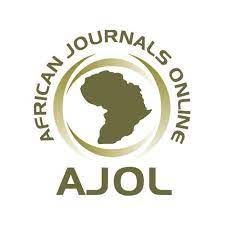National Appropriation of the Notions of Citizenship and Peace Considering the International Agenda in the Post-Civil War Context in Angola
DOI:
https://doi.org/10.54580/R0502.02Keywords:
International agenda, National ownership, Citizenship, Civil war, PeaceAbstract
This study, which has as its problematic the repoliticization of the concepts of citizenship and peace and their joint analytical use, aims to show to what extent the national appropriation of the notions of “citizenship” and “peace” is conditioned by the international agenda, after the end of the civil war in Angola in 2002. This study is a qualitative approach, of a theoretical nature, developed through exploratory bibliographic research. The results indicate that, in Angola, the appropriation of the term “peace” is associated with the appropriation of the term “citizenship” only after the end of the civil war and, from an instrumental point of view, gains some importance following the birth of a new constitutional jurisdiction that changes several of the country's political rules and positions the citizen in an immense sphere of public spaces, but conditioned by the international agenda. From these results, we conclude that, in the post-war context, there are more continuities than ruptures in relation to the need for endogenous appropriation of the concepts of citizenship and peace and the deepening of the positioning of national and local actors within the dimension of the nation-state.
Downloads
References
Brahimi, L. (2007). State building in crisis and post-conflict countries. In 7th Global Forum on Reinventing Government, Building Trust in Government (pp. 26-29). Viena: s/e.
Chambers, R. (1983). Rural development. Putting the last first. London: Pearson.
Chandler, D. (2005). Introduction: peace without politics. In International Peacekeeping (pp. 307-321), n. º 12 (3).
Chandler, D. (2006). Empire in denial. The politics of state-building. London: Pluto Press.
Chandler, D. (2010). International state-building: the rise of post-liberal governance. Abingdon: Routledge.
Chesterman, S. (2007). Ownership in theory and in practice: transfer of authority in UN State building operations. In Journal of intervention and state building (pp. 3-26), n. º 1 (1).
Cornwall, A. (2002). Making spaces, changing places: situating participation traditional peacebuilding. In Palgrave Advances in Peacebuilding (347-366). London: Macmillan.
Donais, T. (2012). Peace building and local ownership. Post-conflict consensus-building. Conflict, development and peace building. London: Routledge.
Eyben, R., e Ladbury, S. (2006). Building effective states: taking a citizen’s perspective. In Development Research Centre on Citizenship, Participation and Accountability (s/p). Brighton: s/e.
Friedmann, J. (1992). Empowerment: the politics of alternative development, Oxford: Blackwell.
Fukuyama, F. (2004). State-building, governance and world order in the twenty-first century. London: Profile Books.
Goldschmidt, V. (1963). Tempo lógico e tempo histórico na interpretação dos sistemas filosóficos: a religião de Platão. São Paulo: Difusão Europeia do Livro.
Held, D. (1995). Democracy and the global order: from the modern state to cosmopolitan governance. Stanford: Stanford University Press.
Hughes, C., e Pupavac, V. (2005). Framing post-conflict societies: international in development. In Institute of Development Studies Working (s/pp). Brighton: s/e.
Ki-Moon, B. (2009). Report of the Secretary-General on peacebuilding in the immediate aftermath of conflict. New York: UN A/63/881-S/2009/304.
Mac Ginty, R. (2010). Gilding the lily? International support for indigenous and pathologisation of Cambodia and the post Yugoslav States. In Third World Quarterly (pp. 873-889), n.º 26 (6).
Mac Ginty, R., e RichmonD, O. P. (2013). The local turn in peace building: a critical agenda for peace. In Third World Quarterly (pp. 763-783), n. º 34 (5). Paper n.º 170.
Narten, J. (2009). Dilemmas of promoting “local ownership”: the case of postwar Kosovo. In R. Paris e T. D. Sisk (orgs.). The dilemmas of state building: confronting the contradictions of post-War peace operations (pp. 252-283). Abingdon: Routledge.
Paris, R. (2004). At war’s end: building peace after civil conflict. Cambridge: Cambridge University Press.
Paris, R., e Sisk, T. D. (2009). Introduction: understanding the contradictions of post-war state building. In R. Paris e T. D. Sisk (orgs.). The dilemmas of state building: confronting the contradictions of post-war peace operations (pp. 1-20). Abingdon: Routledge.
Pouligny, B. (2006). Peace operations seen from below: UN Missions and local people. Bloomfield: Kumarian Press.
Pouligny, B. (2009). Supporting local ownership in humanitarian action. In Global Public Policy Institute - Humanitarian Policy Paper Series. Berlin: AZ Druck und Datentechnik.
Ramsbotham, O., Miall, H., e Woodhouse, T. (2011). Contemporary conflict resolution. (3.ª ed.). Cambridge: Polity Press.
Reich, H. (2006). “Local ownership” in Conflict Transformation Projects. Partnership, Participation or Patronage? In Bergof Research Center for Constructive Conflict Management. Berlin: Occasional Paper.
Richmond, O. P., e Franks, J. (2009). Liberal peace transitions: between state building and peace building. Edinburgh: Edinburgh University Press.
Schmitt, C. (2009). El Concepto de lo político. (trad. de R. Agapito). Madrid: Alianza Editorial.
Downloads
Published
Issue
Section
License

This work is licensed under a Creative Commons Attribution-NonCommercial-ShareAlike 4.0 International License.



























